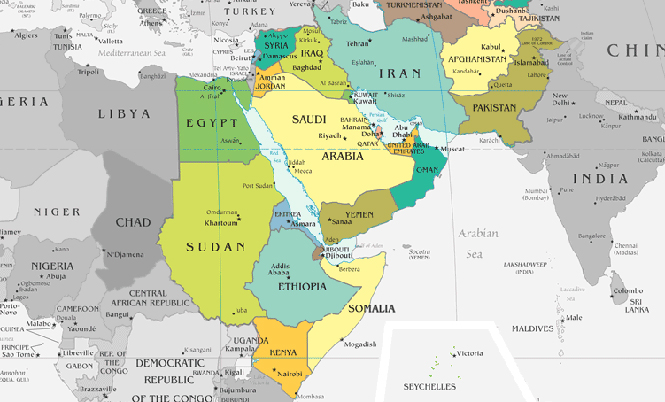Hope for a better life leads to torture for Ethiopians
When there’s not an acute famine in the Horn of Africa, the media tends to leave the misery in that part of the world unreported. I don’t know about you, but I haven’t heard much about Ethiopia specifically in awhile, minus a few international journalist friends mentioning that there is a migration problem for women who are seeking better lives in the Arab peninsula. As of this morning though, I can’t pretend to ignore what’s going on in the region any longer.
It’s not just a “problem,” this migration of Ethiopians. It is a terrifying scenario of torture and human suffering.
“The women get raped and the men are burned,” a 17-year-old girl named Efta told the BBC about a “torture camp” at which she said she was held for three months in Yemen. “They break bones. They take people's eyes out. Everything you can imagine, they do it. I saw it with my own eyes.”
Medecins Sans Frontieres estimates that there are 200 such "torture camps" in this area alone.

An estimated 84,000 Ethiopian migrants arrived in Yemen in 2012 as a stop on their way to what they hope are better lives in the Gulf.
On route to the Gulf, Yemen functions as a desperate way station for Ethiopian migrants. The problem with traveling through a place like Yemen is that the country is in desperate straits itself, leading to a trafficking and extortion racket in which vulnerable migrants become trapped. More than half of the population of Yemen is affected by an ongoing humanitarian crisis in which 13 million people have no access to safe water and sanitation, according to the UN Office for the Coordination of Humanitarian Affairs. Colleagues of mine who have spent time in Yemen have described how young men—up to 40 percent of whom are out of work—spend much of the day chewing qat, a narcotic leaf stimulant.
Conditions have led to total depravity and efforts to dominate the less fortunate. One MSF psychologist working in Yemen, Àngels Mairal, said in May that the emotional obliteration of migrants there is total, with some saying things like “I have no rights” and “I do not exist as a human being.”
“Their dignity has been deeply wounded,” Mairal said. “Many of them do not feel safe and their most basic needs are not being met. They feel uncertain; they don’t know when they will be able to go back to Ethiopia, what their life will be like when they go back or how they will be able to return to their place of origin from the capital.
“Life for sexual violence survivors is especially difficult. Women who’ve already endured the trauma of having been humiliated or raped must also contend with unwanted pregnancies, shame, stigma and possibly rejection by their families when they return home.”
The problem is on a tremendous scale too: The International Organization for Migration says that there are an estimated 84,000 Ethiopian migrants who arrived in Yemen in 2012, and that “some 25,000 of them are now stranded in and around the border town of Haradh. Many are destitute. Others are sick or victims of abuses perpetrated by smugglers and traffickers.”
This is not a region at war, but poverty has created a kind of conflict in which those who are desperate are preying on women and men who are equally impoverished. The torture that accompanies the attempts to gain money is a human rights atrocity in progress, yet it is just such cruelty that falls through the media cracks. At least the BBC and humanitarian groups like MSF have begun to get the word out.
More articles by Category: Immigration, International, Violence against women
More articles by Tag: Rape, Sexualized violence, Trafficking



























